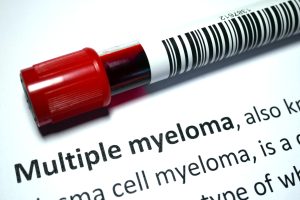
24 RCCA Physicians Named to 2025 Castle Connolly ‘Top Doctors’ List for Exceptional Cancer Care
A cancer diagnosis can be frightening. An individual may worry about how, or if, they will get better. The future becomes unclear and the strain
HIPAA Alert: Potential Data Breach Learn More
Questions on Oncology, Hematology and/or Infusion Clinical Services due to COVID-19 Crisis – CALL 833-698-1623
Important Information for Our Patients Regarding the Coronavirus.
RCCA Providing Area Cancer Patients with Access to Care During Coronavirus Outbreak
RCCA Offering Patients Virtual Visits During Coronavirus Pandemic
As anyone who has experienced frostbite knows, extremely cold temperatures can damage cells in the body. Cryotherapy applies this principle to destroy malignant cells in cancerous lesions and tumors. By carefully treating cancerous tissues with repeated freeze-thaw cycles, doctors can shrink or eliminate tumors.
As leading cancer care providers in New Jersey, Connecticut, Maryland, and the Washington, D.C., area, the medical oncologists of Regional Cancer Care Associates (RCCA) are experienced in providing an array of innovative treatment methods, including cryotherapy. As cancer treatments are always evolving, Regional Cancer Care Associates stays at the forefront of care to achieve more positive outcomes for patients. Learn more about cryotherapy, its benefits, and the kinds of cancers it can treat.
Cryotherapy is a medical procedure that uses liquid nitrogen, liquid nitrous oxide, or compressed argon gas to freeze and destroy cells. This form of therapy may be used in cancer care or to treat precancerous conditions.
There are different methods for administering cryotherapy as a cancer treatment:
Cryosurgery is a localized cancer treatment method that freezes tissue, causing cells in the treated area to die. This form of cryotherapy can be used to treat:

When using cryosurgery for internal tumors, a physician uses a narrow, needle-like device called a cryoprobe that freezes the cancerous tissue. Once the frozen tissue thaws, the cancerous cells will die off and the patient’s body will absorb the dead tissue. Skin cancer lesions and other skin tumors will turn into scabs and eventually will fall off once the skin has healed.
Another cancer treatment technique is cryoablation, which also uses a cryoprobe. The cryoprobe is a thin needle that is inserted through the surface of the skin and directly into the tumor, forming an ice ball around the cancerous cells. Cryoablation can be used to treat certain cases of:
This method may be recommended for large tumors that cannot be treated with conventional surgery. Physicians also use cryoablation in spray form to treat esophageal cancers and diseases such as Barrett’s esophagus.
Cryoimmunotherapy is a developing treatment strategy that combines the techniques of cryoablation and immunotherapy – the use of agents that boost or change how a patient’s immune system fights cancer. For example, an oncologist might administer cryoablation followed by an injection of immunotherapy drugs. Clinical trials have been conducted to test the effectiveness of cryoimmunotherapy in treating prostate cancer, squamous cell carcinoma in situ, and superficial basal cell cancer, among other forms of cancer.
Currently, cryotherapy is used to treat several types of cancer, including:
Cryotherapy can be used as an outpatient procedure for patients with prostate cancer. During the procedure, a surgeon uses ultrasound guidance to place needles into the prostate that deliver cold gases, creating ice that destroys cancerous cells. A catheter is placed in the urethra to keep it from freezing during treatment.
While cryotherapy usually is not the first treatment option for prostate cancer, it may be recommended if prostate cancer comes back after the patient has been treated with radiation. Cryotherapy also is sometimes used to treat older patients who should not undergo surgery or radiation therapy, as well as patients with early-stage prostate cancer that has not spread to other parts of the body. Potential side effects include blood in the urine, difficulty passing urine, and erectile dysfunction.
Cryotherapy also can be used to freeze and destroy cancerous cells in the liver. Cryotherapy for liver cancer is not as invasive as traditional surgery, so patients can recover faster and have shorter hospital stays. However, it is still unclear whether cryotherapy is an effective long-term treatment for liver cancer, so it may not be covered by some insurance plans. Recent cryotherapy studies have shown that when cryotherapy is used for liver tumors that cannot be treated with surgery, patients can experience complications and tumor cells may return.
Certain skin cancers such as basal cell and squamous cell carcinoma, which affect only the top layers of the skin, as well as precancerous skin conditions, can be treated with cryotherapy. For small, superficial basal cell carcinomas, the Skin Cancer Foundation reports that cryosurgery is effective in 85% to 90% of cases. While side effects usually are minimal, they can include scarring or discoloration at the treatment site.
Cryotherapy may be most effective in the treatment of actinic keratosis. These are small, non-cancerous, scaly patches of skin that develop over time because of recurrent exposure to UV rays. If left untreated, actinic keratoses may turn into skin cancer. Dermatologists also often use cryotherapy to safely remove benign skin growths, such as warts or skin tags, as a quick in-office procedure.
Note that cryotherapy is not recommended for treating another form of skin cancer, melanoma, which generally requires surgical excision.
Cryotherapy currently is an experimental treatment for patients with breast cancer. While more research is needed, cryotherapy may be less invasive than traditional breast cancer surgery. Additionally, one type of cryotherapy may prevent chemotherapy-related neuropathy, a side effect of some chemotherapy drugs that damage the nervous system. In one study of patients with breast cancer, researchers placed frozen gloves and socks on patients’ hands and feet before a chemotherapy infusion treatment and removed them a few minutes after the infusion was complete. The researchers found that individuals who received cryotherapy experienced less pain than people who did not wear the cold gloves and socks during chemotherapy infusion.
Meanwhile, the people who did wear the gloves and socks had no serious side effects from this additional treatment.
Both healthy and cancerous cells are sensitive to very low temperatures. By freezing cancerous tissue, thawing, and refreezing it with a spray treatment or cryoprobe, water molecules in the cells turn into ice. This causes the cells to die, activating the cellular processes of apoptosis and necrosis.
Cryotherapy offers several benefits for patients. Because it is minimally invasive, recovery time is shorter than it is for other treatments, such as surgical resection. By precisely administering cryotherapy treatments, surrounding healthy tissue is preserved. Additionally, the procedure can be repeated if needed.
However, there are a few downsides to cryotherapy. Some patients experience side effects, especially when cryotherapy is used for prostate cancer treatment. Cryotherapy may not be effective in treating large or deep-seated tumors. And because research on its effectiveness is limited, cryotherapy may not be covered by certain insurance providers, making it cost-prohibitive for some patients.
Common side effects of cryotherapy include:
Infection is a rare but possible side effect of cryosurgery. Cryotherapy generally is safe when administered by a qualified medical professional. Patients should be wary of spas and other businesses that advertise services such as whole-body cryotherapy. Cryotherapy treatments can be potentially dangerous in a nonmedical setting, causing frostbite and other adverse effects.
Cryotherapy research is an exciting frontier in cancer treatment. Cancer researchers are conducting studies and clinical trials to better understand how cells respond to cryotherapy, as well as the forms of cancer that might be best suited for this kind of treatment. In some cases, cryotherapy is combined with other cancer treatment modalities, including:
Each patient is different. Patients’ age, the type of cancer they have, how far their cancer has progressed, and their overall health all play a role in determining their cancer treatment plan. In the future, cryotherapy may become a targeted form of therapy used more frequently in cancer care.
Some frequently asked questions regarding cryotherapy are answered below. Patients who are currently undergoing cancer treatment and want to learn more about cryotherapy should contact their oncology team.
Cryotherapy is well tolerated in many patients. Spray cryotherapy treatments might cause mild discomfort or a stinging sensation. The skin might blister afterward or feel irritated or itchy.
Internal cryosurgery may be performed with local, general, or epidural anesthesia, so the patient will not feel pain during the procedure. After cervical cryotherapy, some patients experience mild cramping or bleeding. Patients who have undergone cryotherapy for prostate cancer may have soreness or bruising around the perineum.
The length of a session will depend on the type of cancer being treated. Cryotherapy for skin cancer is administered as a spray treatment that often takes just a few minutes. Treatment for abnormal cervical cells using cryotherapy also is a quick procedure. Cryotherapy for kidney, prostate, or liver cancer usually takes longer, especially if anesthesia is administered.
The side effects of cryotherapy generally are less severe than those that result from radiation therapy or surgery. Certain treatments may result in long-term side effects. For example, patients who have cryotherapy for skin lesions occasionally have numbness or loss of feeling at the treatment site because of nerve damage. It is not yet clear if cryotherapy for liver cancer causes long-term side effects or affects cancer recurrence rates.
While cryotherapy is not appropriate for treating every type of cancer, it offers promising benefits for certain patients. Regional Cancer Care Associates offers cryotherapy when appropriate for patients with cancer, administered by an experienced team of board-certified physicians and medical support staff. A consultation with a skilled oncologist can determine which treatment is best for a particular patient. Providing advanced cancer care and treatment for blood disorders at more than 20 locations, Regional Cancer Care Associates serves patients throughout New Jersey, Connecticut, Maryland, and the Washington, D.C., area. For more information, contact us or request an appointment today.
If you or a loved one has been diagnosed with cancer and wish to learn more about cryotherapy, the oncologists at Regional Cancer Care Associates can help. Cryotherapy for cancer is still in its infancy, but doctors and scientists continue to learn more about its benefits and how to best use this treatment.
No two cancers are the same, and only a comprehensive consultation with a skilled oncologist can determine which treatment is most appropriate for your needs. For more information, contact one of our 25 locations in Connecticut, Maryland, or New Jersey.

A cancer diagnosis can be frightening. An individual may worry about how, or if, they will get better. The future becomes unclear and the strain

A lung cancer diagnosis can be life-changing, bringing uncertainty and many questions about available treatments. At Regional Cancer Care Associates (RCCA), we understand the importance

Multiple myeloma (MM) is a rare type of blood cancer that often develops without early symptoms, making awareness of risk factors essential. Regional Cancer Care

Regional Cancer Care Associates is one of fewer than 200 medical practices in the country selected to participate in the Oncology Care Model (OCM); a recent Medicare initiative aimed at improving care coordination and access to and quality of care for Medicare beneficiaries undergoing chemotherapy treatment.